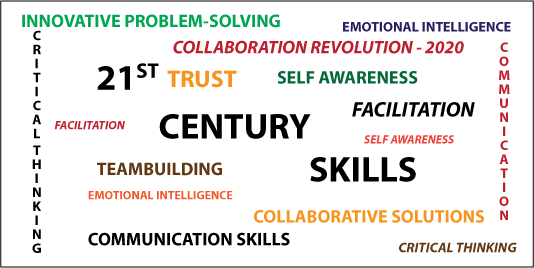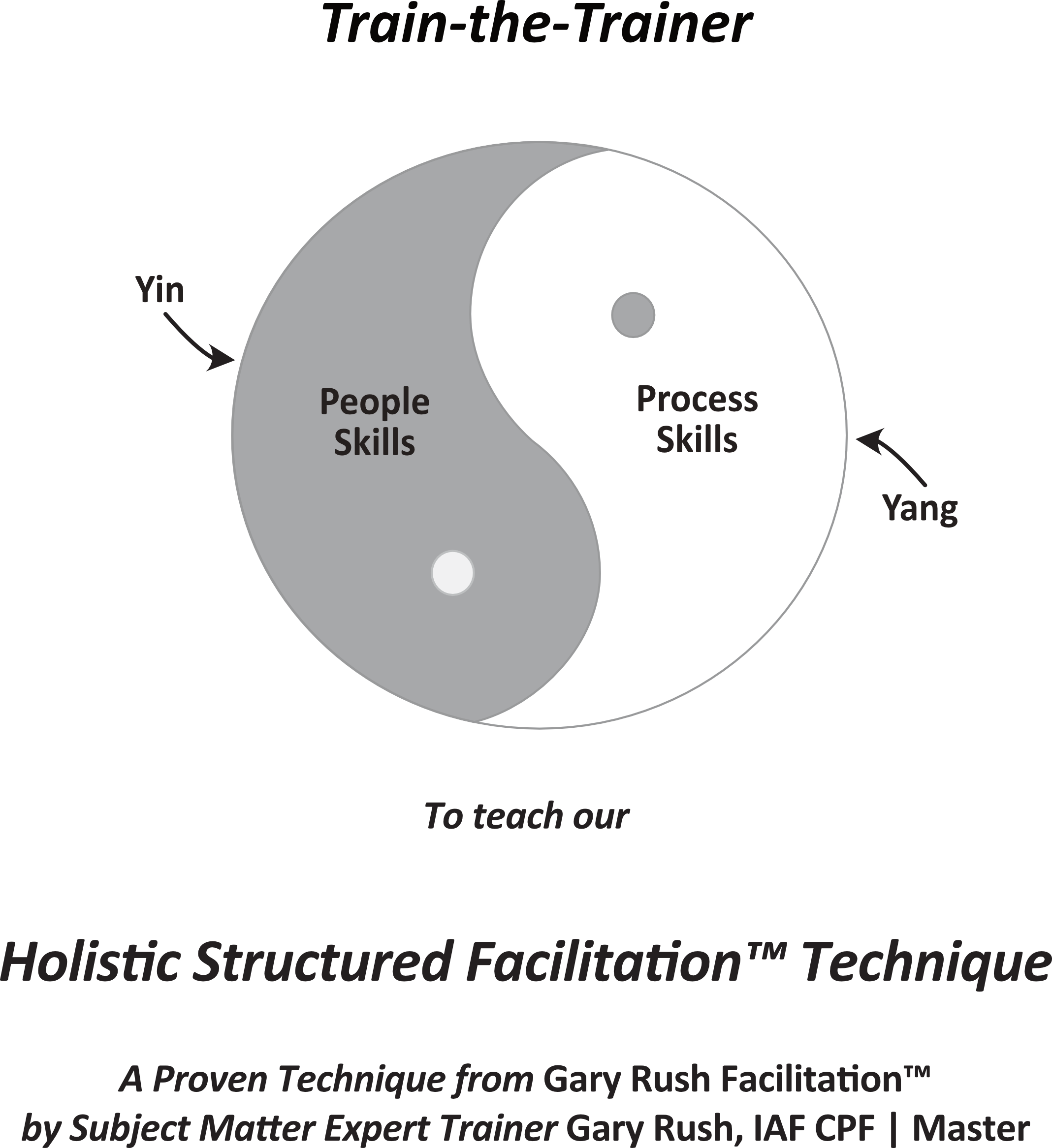February 2013 - The FoCuSeD™ Facilitator eNewsletter

Facilitation Skills - The must-have Skills for the 21st Century | Gary Rush Facilitation
I just read an article that describes the Must-Have Job Skills and they all relate to facilitation Skills. This is something that I spoke about at the IAF North America conference in Halifax in May 2012. These are skills that are useful in business and in life.
Must-Have Job Skills
Writing for the Wall Street Journal, Marketwatch, on November 18, 2012, author Ruth Mantell lists four must-have job skills. The skills are:
- Clear Communications
- Personal Branding
- Flexibility
- Productivity Improvement
How do these relate to facilitation skills? Let’s explore.
Clear Communications
According to Mantell, communication is key for people to advance. Clearly articulating your point of view and connecting with others is fundamental. Communication is not about just presenting your message, it is also about clearly hearing what someone else is communicating so that you respond and participate in the discussion effectively – Active Listening. Learning how to stand in front of participants and clearly communicate what is required to guide participants to accomplish something greatly enhances communication.
Personal Branding
Personal branding is about how you present yourself to others. Learning how to present, how to deal with participants at various levels, and how to get a group of people to work together creates a persona that shows confidence. Facilitation skills are core to collaborative leadership – the ability to get disparate people to collaborate and, most importantly, the ability to lead.
I’ve trained many people over the years and alumni have gone on to become CIOs, CEOs, and successful entrepreneurs. Many credit their success, in part, to the facilitation skills training that they received. It enabled them to become effective Facilitators and leaders.
Flexibility
This is a cornerstone of facilitation skills – you learn how to be flexible. Agendas change, topics take a turn and require flexibility in the process, and events happen outside the workshop/meeting that require flexibility in process and schedule. Learning to bring flexibility gives you the confidence and skills to adjust any situation when needed. Workshops and meetings seldom go exactly as planned (actually, I’m waiting for the first one that goes exactly as planned) and we must be flexible. This is fundamental.
Productivity Improvement
Businesses and organizations work smarter when facilitation skills are incorporated into their culture. Facilitated Workshops began as a way to improve productivity. Not only are workshops more productive – they generally increase productivity of a project by 4-to-1. With facilitation skills as part of your job, you can get much more accomplished simply because you are able to harness the creativity and wisdom of a group of people. Collaborative leadership is the opposite of micro managing.
Leadership in the 21st Century
I tell my students that the single most important skill in any organization is collaborative leadership. It’s the only skill that cannot be outsourced. More than any other skill, organizations need people who can bring disparate people together, work as a team, and achieve their goal – Facilitation Skills. It is also something that graduate schools are looking at. According to an article in The Economist by Ken Starkey, professor at Nottingham University Business School called Which MBA, business schools are reviewing, and some changing, their curriculum for an MBA. Previously, management schools focused on financial aspects of management. Schools are now realizing that incorporating humanity-based skills are important. These are often called “soft” skills (I prefer “people” skills) and are either being added to the curriculum or, in some instances, the entire program is being rewritten around the humanity skills. The 21st Century is requiring that leaders move away from selfishness (extreme individualism) to moral collaboration (working for the better of all). Facilitation Skills are about trusting the wisdom of the group and learning to trust that, properly facilitated with the right process, groups develop better ideas that benefit the greater whole.
Summary
Facilitation Skills are the most important skills to develop in the 21st Century. We need collaborative leaders, people who can get others to work together. We need people who are able to communicate and present themselves effectively. We need people who can deal with flux and adjust when needed. We need people who work and enable others to work productively. Everyone who deals with people benefits from facilitation skills – whether you become a Facilitator or develop facilitation skills as part of your job. The more effectively we learn "how to" collaborate, the more able we are at solving the problems of the 21st Century. Be facilitative – Save the World! ![]()
See Gary Rush Facilitation | FoCuSeD™ Facilitation Training to register...


